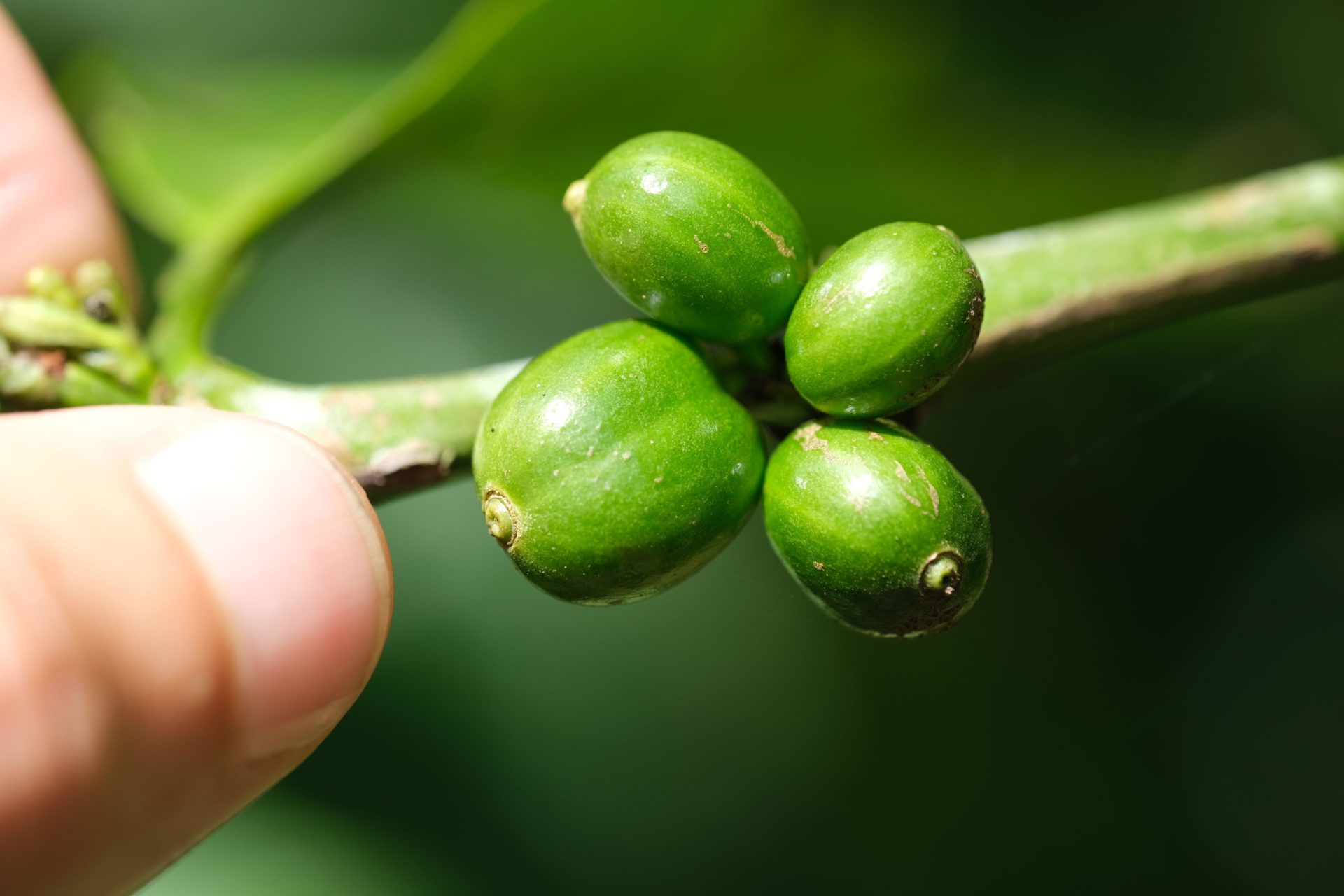Drinking coffee has a range of benefits outside of just waking you up in the morning, according to Trinity Professor Luke O’Neill.
On this week’s episode of Show Me The Science, Prof O’Neill explained that while the chemical caffeine makes humans feel more alert, it is produced by coffee plants as an insecticide.
“[The coffee plant] makes it to kill insects nibbling on leaves,” he said.
“Incredibly, when a little insect starts to bite on a coffee plant’s leaf, the coffee plant begins to make caffeine, and the caffeine then will make the insect die, incredibly.
“It’s probably affecting a similar adenosine pathway in the insect.”
 Coffee berries. Imagine: Marko Reimann / Alamy. 28 March 2020
Coffee berries. Imagine: Marko Reimann / Alamy. 28 March 2020According to Prof O’Neill, adenosine is a chemical produced by the brain that causes a person to feel sleepy.
“Adenosine, if you like, is kind of a natural sleep-inducing chemical,” he said.
“We need to sleep six, seven, eight hours a night, and adenosine helps promote that.
“Now, guess what? Coffee antagonises the adenosine receptor in the brain; it locks onto it actually.
“Adenosine will lock onto what’s called a receptor, triggering the sleepy pathway, caffeine will flood that, lock on instead of adenosine – because it binds a bit more tightly – and now you begin to feel alert.”
Prof O’Neill said that when adenosine is blocked in insects, they die, but for humans the effect is much milder.
Anti-inflammatory properties
Apart from keeping us awake during the day, Prof O’Neill also said that coffee has been proven to limit inflammation in the body.
“If you are a biochemist like me, you want to know what are the biochemicals in life, and if you smash up a coffee plant and ask, ‘What are the chemicals in it?’ you find loads of caffeine, obviously, but there’s other chemicals as well,” he said.
“For example, a chemical called cafestol, there’s a chemical called kahweol, and chlorogenic acid.
“They’ve been studied and interestingly, they can decrease inflammation... that can be very useful and in fact they’re exploring some of these now as antioxidants that could be useful in various inflammatory diseases.”
According to Prof O’Neill, coffee has also been proven to protect against cancer.
Main image: Luke O'Neill (L) and a coffee cup (R).









